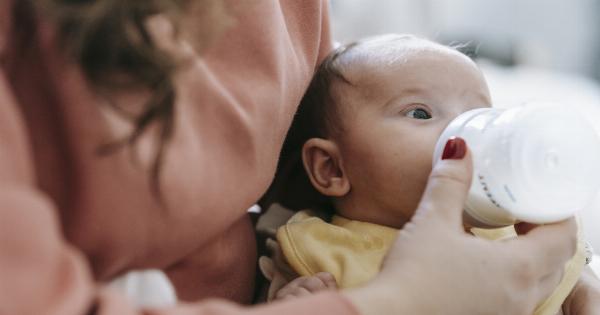For years, breast milk has been the gold standard for infant nutrition. While formula comes close, there are still many benefits to breast milk that can’t be replicated in a lab.
However, for a variety of reasons, not all new mothers can breastfeed their babies. This is where donor milk comes in. Donor milk can provide an alternative that is just as good as mother’s milk, and for some babies, it can be a lifesaver.
What is Donor Milk?
Donor milk is milk that has been expressed by a mother who is not biologically related to the recipient baby. This milk is then pasteurized to remove any harmful bacteria or viruses before being given to the recipient.
Donor milk is typically collected from mothers who have a surplus of milk or from milk banks where milk has been collected from multiple donors.
How is Donor Milk Different from Formula?
Formula is made in a lab and is designed to provide the necessary nutrients for babies to grow and thrive. Donor milk, on the other hand, is a natural food that provides many benefits beyond the basic nutrients found in formula.
For example, donor milk contains antibodies that help protect babies from infections, as well as hormones that promote healthy growth and development.
Who Can Benefit from Donor Milk?
Donor milk can be beneficial for any baby who is unable to receive breast milk from their own mother.
This includes babies who may be premature, have medical issues that prevent them from breastfeeding, or whose mothers are unable to produce enough milk. It can also be a good option for adoptive parents or same-sex couples who want to provide their baby with breast milk.
How is Donor Milk Collected and Processed?
Donor milk is typically collected using a breast pump and then stored in a sterile container. The milk is then sent to a milk bank where it is tested for bacteria and viruses before being pasteurized to remove any harmful pathogens.
Once the milk has been pasteurized, it is refrozen and stored until it is needed.
Is Donor Milk Safe?
When collected and processed properly, donor milk is very safe. Milk banks have many protocols in place to ensure that the milk is free from harmful bacteria and viruses before it is given to a baby.
However, like any food product, there is always a risk of contamination or infection. This is why it is important to work with a reputable milk bank that follows strict safety and processing guidelines.
How Can I Get Donor Milk for My Baby?
If you are interested in using donor milk for your baby, there are a few different options available. If you are in the hospital, your care team may be able to provide you with donor milk.
If you are at home, you can reach out to a milk bank or a milk-sharing network to find a donor. It is important to note that not all donors or milk banks are created equal, so be sure to do your research and work with a reputable provider.
What are the Benefits of Donor Milk?
The benefits of donor milk are numerous. For premature babies, donor milk has been shown to reduce the risk of a serious bowel infection called necrotizing enterocolitis (NEC).
Donor milk also contains a unique combination of proteins and growth factors that promote healthy growth and development. For babies who are unable to breastfeed, donor milk can provide a natural food source that promotes bonding and development.
What are the Challenges of Using Donor Milk?
While donor milk can be a great option for some families, there are also some challenges to consider. Donor milk can be expensive, especially if it needs to be shipped or if you need to use a milk sharing network.
Finding a reliable provider of donor milk can also be challenging, as not all providers follow the same safety and processing guidelines. Finally, some mothers may have concerns about the ethics of using donor milk, especially if they are not comfortable with the idea of feeding their baby milk from another mother.
Conclusion
Donor milk can be an excellent option for families who are unable to breastfeed their babies. While not all babies will need donor milk, for those that do, it can provide many benefits and help promote healthy growth and development.
If you are considering donor milk, be sure to do your research and work with a reputable provider to ensure the safety and quality of the milk.
























